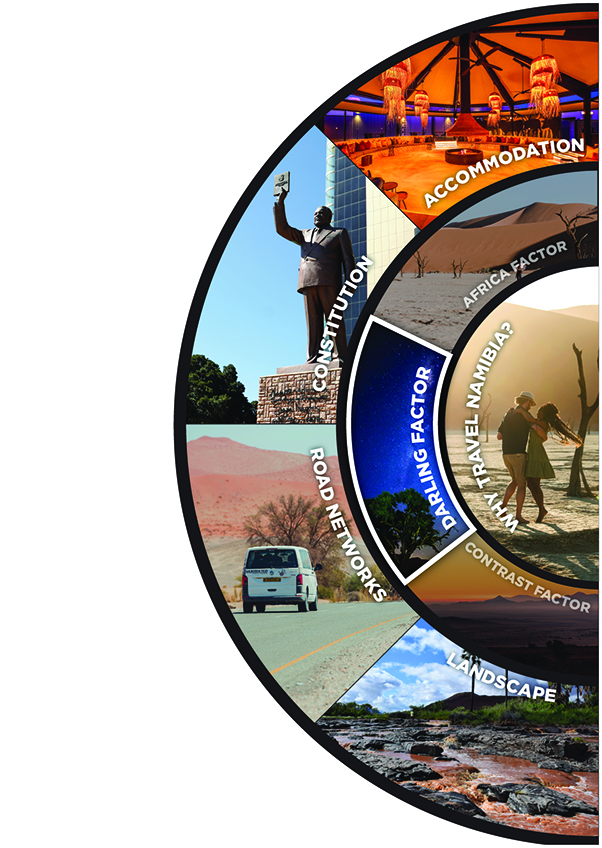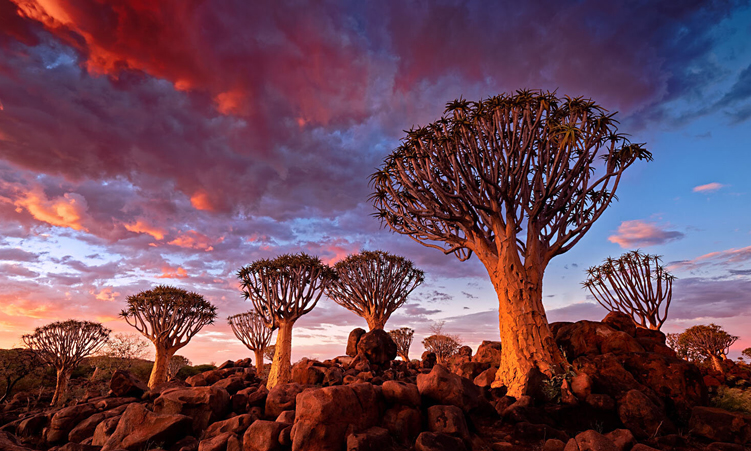Travellers from around the world are discovering a breathtakingly stunning country each day they visit the land of open spaces (Namibia).
This week’s edition explores what makes the country such a gem to behold.
The ‘Darling Factor’ (the second of three factors in this series) is Namibia’s one-of-a-kind blend of natural beauty, political stability and good infrastructure.
At the heart of Namibia’s allure lies its strong democratic foundations.
The country’s Constitution, adopted in 1990 after its hard-fought independence, has accomplished two key feats.
Firstly, the Constitution was the first in the world to explicitly protect the environment by enshrining the preservation of it in Article 95 (l), and the government provided opportunities for people living in communal regions to manage their natural resources by establishing communal conservancies.
Namibia’s commitment to environmental conservation is truly noticeable, with more than 40% of the country’s land under some sort of protection, either in the form of national parks, communal conservancies or private nature reserves.
This deliberate inclusion of environmental protection maintains the delicate balance of its ecosystems and has not only safeguarded the country’s unique flora and fauna, but has also positioned Namibia as a global leader in sustainable tourism.
Secondly, the Constitution has guaranteed stability, acting as the social contract that guides and shapes us as a nation. This deep respect for our Constitution was clearly shown when, after the sudden passing of Namibia’s third president, Hage Geingob, we experienced a smooth transition of power.
Geingob, who chaired the Constitutional Committee, placed immense trust in the Constitution, and this trust was justified when Nangolo Mbumba was seamlessly sworn in as Namibia’s fourth president.
Our deep respect to the Constitution and its guiding principles has truly made Namibia a shining example of the democratic process.
Additionally, Namibia is ranked 56th on the peace index list presented by the Institute of Economics and Peace.
This ranking is significant because it emphasises Namibia’s reputation as a safe and stable destination, which is a big attraction for travellers.
In an era when travellers prioritise safety, such high rankings are an excellent marketing tool, enticing people looking for peaceful and secure places to explore. This, in turn, stimulates the country’s tourism industry and general economic growth.

The country’s financial system, anchored by its currency’s peg to the South African rand, has provided a stable foundation for economic growth.
Namibia’s well-developed harbour, the Port of Walvis Bay, has further reinforced its position as a regional hub for trade and commerce.
The pegging of Namibia’s currency to the South African rand promotes economic stability, limiting the likelihood of severe currency movements.
This consistency is vital for both tourists and investors, since it assures stable pricing and financial security.
The country’s infrastructure (water, electricity, administrative, etc.) is another indicator of progress, particularly when it comes to the tourism industry.
Namibia’s road networks have been lauded as the best on the continent, easily connecting its diverse landscapes, allowing visitors to explore the country’s breathtaking sites with ease.
The well-maintained gravel channels that criss-cross the nation’s wild scenery add to the sense of adventure, inviting travellers to venture off the beaten path.
Namibia’s tourism industry has flourished, with a wide range of accommodation options that have been set on international standards.
From luxurious lodges tucked away in the heart of the Namib Desert to eco-friendly camps that blend with the surrounding landscapes, Namibia’s hospitality sector has raised the bar for sustainable tourism by providing options for all kinds of travellers.
While Namibia’s success story is undeniable, the country is not without its challenges.
With the recently adopted proposal by the minister of home affairs, immigration, safety and security regarding visa requirements for certain nationalities, if not tackled efficiently, it could erode the Darling Factor of Namibia.
The proposal poses the risk of losing potential travellers as visa applications tend to be costly and time consuming.
However, if the government streamlines efforts addressing these issues regarding the visa process it would demonstrate its commitment to maintaining Namibia’s appeal and ensuring the continued growth of its tourism sector.
*Join us next week for the finale of this series as we wrap up with the ‘Contrast Factor’.
Stay informed with The Namibian – your source for credible journalism. Get in-depth reporting and opinions for
only N$85 a month. Invest in journalism, invest in democracy –
Subscribe Now!







